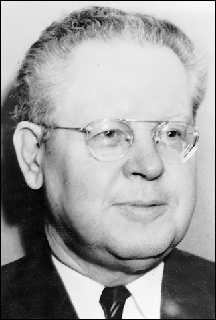It’s been awhile since I’ve done any sort of book review. But having just completed Adam Schrager’s The Principled Politician: The Ralph Carr Story, it seemed an apt time to change that. Those who won’t want to miss this book include students of Colorado history, fans of the World War II era (especially the home front), and anyone interested in a sadly forgotten inspirational story that seems foreign in today’s all-too-jaded and polarized world of politics.
 As introduced to readers in The Principled Politician, Ralph Carr (1887-1950) — Republican governor of Colorado from 1939 to 1943 — was a rare model of statesmanship. Fittingly, he held deep admiration and adulation for our nation’s 16th president Abraham Lincoln. He recognized the value of Lincoln’s political maxim — “A universal feeling, whether well or ill founded, cannot be safely disregarded” — and sought to balance it with a commitment to upholding and advancing the ideal of equality under the law.
As introduced to readers in The Principled Politician, Ralph Carr (1887-1950) — Republican governor of Colorado from 1939 to 1943 — was a rare model of statesmanship. Fittingly, he held deep admiration and adulation for our nation’s 16th president Abraham Lincoln. He recognized the value of Lincoln’s political maxim — “A universal feeling, whether well or ill founded, cannot be safely disregarded” — and sought to balance it with a commitment to upholding and advancing the ideal of equality under the law.
Though his office was not as high nor his charge as grave as Lincoln’s, Carr did very well as a statesman under the circumstances presented him. Deeply-held principles guided his administration. First, in his commitment to restoring fiscal responsibility to the state as he upheld the value of limited government. Second, and the major theme of the book, in his steadfast refusal to give in to the anti-Japanese hysteria following the devastating Pearl Harbor invasion, insisting on the absolute recognition of citizens’ constitutional rights regardless of ethnic or national origin.
Carr’s adherence to principles ultimately cost him his political career. But as exhibits of true statesmanship, he later was vindicated by the absence of any domestic terrorism from Americans of Japanese ancestry. And he firmly steered public opinion toward essential constitutional liberty while respectfully responding to citizens’ strongly stated disagreements and without overreaching his power. Somewhere in this story would seem to lie lessons for today’s elected officials — in Colorado and nationwide.
Yet The Principled Politician ultimately is no paean to a marble man or demigod. In the entire account, Carr comes across intimately as a flawed man with quirks, passions, burdens, frustrations, and a poignant, humane sense of humor.
Schrager’s biography is a worthy example of history as it should be written: originally researched and fresh material presented in an accessible and engaging narrative.
The book left me with only one question: I understand that Carr Street on which I drive nearly every day is named after the late ex-governor. But when and how did that happen?
Leave a Reply
You must be logged in to post a comment.